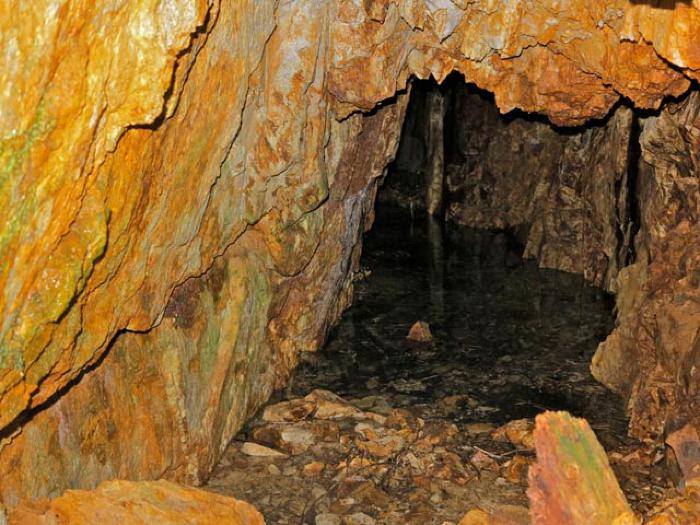Gold — Suulutaaq

The bedrock underlying the Kodiak Archipelago formed about seventy million years ago during the Late Cretaceous period. Geologists believe that Kodiak’s slates and greywackes developed on the South Pacific seafloor before rafting north on the earth’s crust to their current location. During this process, deposits of quartz were literally squirted into cracks in the rocks, where they cooled and formed distinctive veins. Some of these veins contain gold, silver, and metals of the platinum group.
Although significant deposits of precious metals have yet to be found on Kodiak, small quantities of gold have been found in association with Kodiak’s quartz deposits, particularly in Uyak Bay. They are also a consistent find in the region’s glacial gravels. As glaciers cut into the island’s bedrock, they eroded the gold in local quartz veins and redeposited it in sands and gravels. Erosion and wave action have worn away some of these glacial deposits, leaving gold in beach deposits.
Although the Alaska and Yukon gold rushes of the late nineteenth and early twentieth century diverted attention from Kodiak’s fur industry, reducing the number of ships that visited the archipelago, gold fever reached Kodiak. Most of the mining took place along the beaches, where prospectors worked gravels to extract the gold. During this era, Alutiiq families participated in placer mining in places like Bumble Bay, to supplement income from fox farming and trapping. Other miners tried lode mining, cutting adits and shafts into hard-rock prospects to find the source of the placer gold. None of these ventures were very profitable and mining faded.
The Alutiiq word for gold, suulutaaq, comes from the Russian word zoloto. Because there is no word for yellow in the Alutiiq language, some people refer to the color yellow with the term suulutat’stun, which means “something like gold.”
